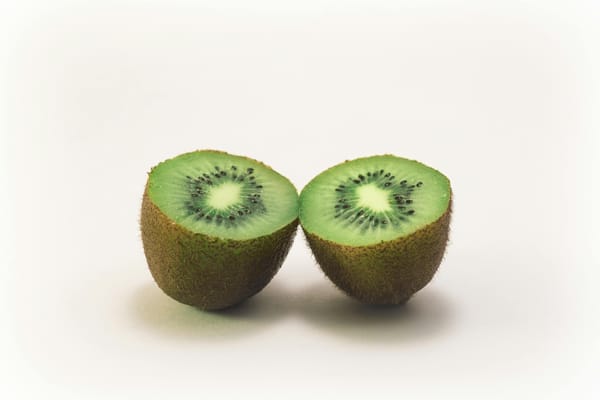Happy Monday friends - hope you had a great Christmas and New Year break! We're back to it in 2025, and I have a lot in store for you to help you continue to improve your health.
It's a nutrient that we don't make ourselves.
We don't store it all that well either.
Yet it is so important for a variety of functions: skin health, immune health, collagen production and optimal iron absorption to name a few.
In my opinion, we need to be maxxing out on Vitamin C.
When I mention Vitamin C, you probably think of citrus fruits like oranges, maybe as a result of being fed them as a child when your parents noticed that a cold was starting to come on.
And while that was the right idea, we have so much info now about the actual best sources of Vitamin C to really have a massive impact on our health.
Vitamin C Recommended Daily Allowance
The National Institute of Health (NIH) puts recommended daily allowances for Vitamin C as follows:
- Men (19 years and older): 90 mg/day
- Women (19 years and older): 75 mg/day
- Pregnant Women: 85 mg/day
- Breastfeeding Women: 120 mg/day
In my view, these numbers are too low.

It's when you go to around 500mg – 1000mg per day (totally safe amount by the way, the upper limit is 2000mg) that you start seeing some serious benefits for things like:
- reducing the duration of a cold
- skin health
- better wound healing
- improved immune support
- improved iron absorption
- increased antioxidant activity (key in reducing inflammation and oxidative stress caused by environmental factors).
Vitamin C and skin health
In fact, if we are on the topic of skin health, beyond well-known topical agents such as retinol, Vitamin C is one of THE most important factors for great skin health.
This is because Vitamin C helps with collagen production.
Collagen is the main protein present in the body. It is a key component of skin and connective tissues, and it is essential for the maintenance of healthy skin and reduction in signs of ageing (fine lines, wrinkles and so on).
It's one of my personal daily skin health must-haves.

My favourite source for Vitamin C maxxing
There are plenty of Vitamin C sources out there that you can get into your routine – foods like kiwi, bell peppers and papaya to name a few.
But we're trying to pump up those rookie numbers and get above 1000mg per day, remember?
My solution to that? Acerola cherry.
If you haven't heard of it, is a bright red fruit that is native to South and Central America, the Caribbean and Mexico, and it is known for its insanely high Vitamin C content.
How high you might ask?
Usually sold in the form of a whole-food powder, acerola cherry's Vitamin C content ranges from 500mg – 1200mg.
Make sure you check the label, but in an ideal world you want to get one that's towards that upper range for max benefits.

My go-to source is this one from Time Health, which contains 1080mg of Vitamin C per teaspoon.
Camu Camu is another fruit which is incredibly high in Vitamin C and gets an honorable mention here.
Again, it typically comes in the form of a concentrated whole-food powder and typically contains around 600-700mg of Vitamin C per teaspoon.
Both of these are very easy to utilise – get them into your oats after cooking them, sprinkle a teaspoon on top of granola or yoghurt bowls, add them to your smoothie ingredients, or even just mix it in water.
Easy as that.
So now you have a bit more knowledge on Vitamin C, its benefits, and why we actually need far more than what the Recommended Daily Allowance (RDA) suggests.
It's important to remember that RDA's just help us prevent deficiency by suggesting a minimum amount for us to avoid problems and be adequate – but this doesn't actually take into account the benefits of going towards higher amounts.
I have a belief that I often think about when it comes to nutrient intake, and this could be something that you adopt when it comes to health overall in 2025:
We shouldn't want to be just adequate; we should want to be optimal.
Hopefully an increased dosage of a very important nutrient – and the health benefits that come along with that – can kickstart you adopting this mindset for 2025.
Stay healthy friends,
Jeff
